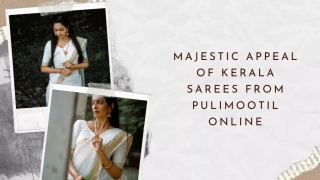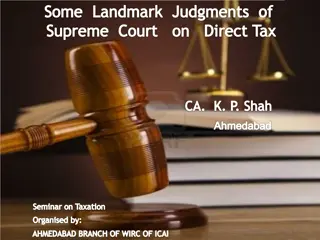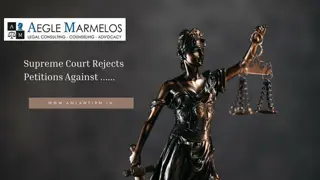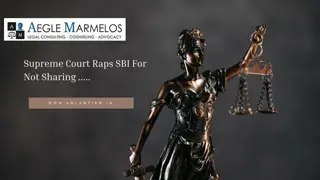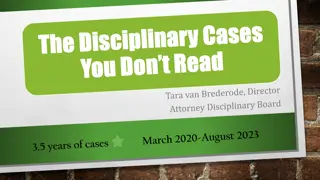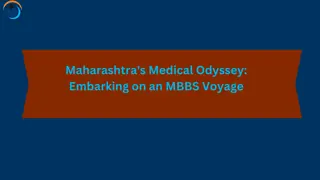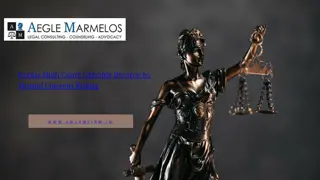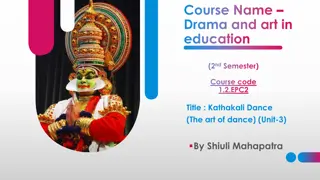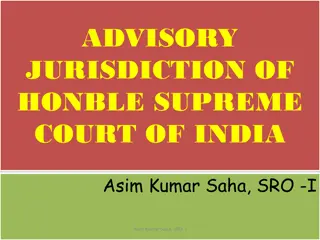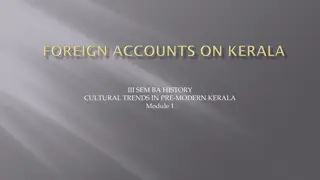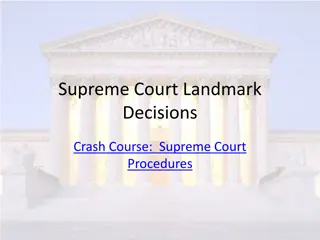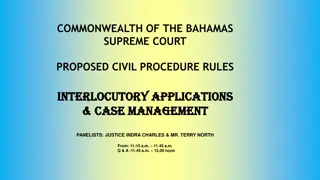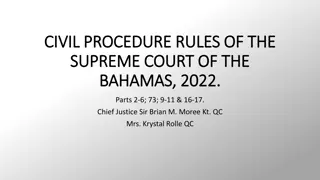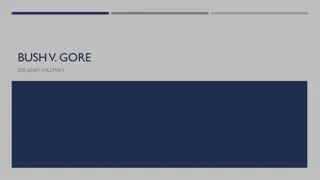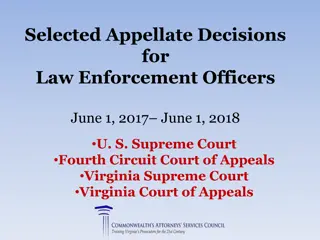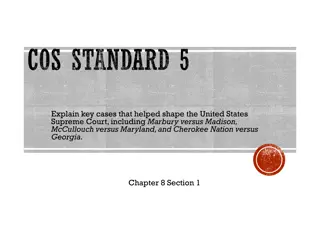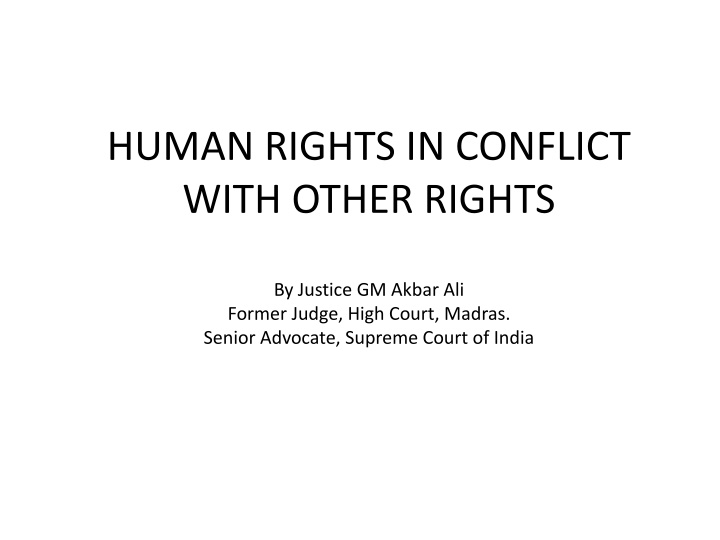
Human Rights in Conflict: Justice GM Akbar Ali's Insightful Analysis
Explore Justice GM Akbar Ali's perspective on human rights and their interpretations in India, referencing the Universal Declaration of Human Rights and the Constitution of India. Delve into key articles relating to equality, discrimination, protection of life and liberty, abolition of untouchability, prohibition of torture, and more.
Download Presentation

Please find below an Image/Link to download the presentation.
The content on the website is provided AS IS for your information and personal use only. It may not be sold, licensed, or shared on other websites without obtaining consent from the author. If you encounter any issues during the download, it is possible that the publisher has removed the file from their server.
You are allowed to download the files provided on this website for personal or commercial use, subject to the condition that they are used lawfully. All files are the property of their respective owners.
The content on the website is provided AS IS for your information and personal use only. It may not be sold, licensed, or shared on other websites without obtaining consent from the author.
E N D
Presentation Transcript
HUMAN RIGHTS IN CONFLICT WITH OTHER RIGHTS By Justice GM Akbar Ali Former Judge, High Court, Madras. Senior Advocate, Supreme Court of India
In Keshavananda Bharati v. State of Kerala, the Supreme Court observed, "The Universal Declaration of Human Rights may not be a legally binding instrument but it shows how India understood the nature of human rights at the time the Constitution was adopted."
Universal Declaration of Human Rights Constitution of India 14. Equality before law. The State shall not deny to any person equality before the law or the equal protection of the laws within the territory of India. Article 1 All human beings are born free and equal in dignity and rights. They are endowed with reason and conscience and should act towards one another in a spirit of brotherhood. Article 2 15. discrimination on grounds of religion, race, caste, sex or place of birth. (1) The State shall not discriminate against any citizen on grounds religion, race, caste, sex, place of birth or any of them. Prohibition of Everyone is entitled to all the rights and freedoms set forth in this Declaration, distinction of any kind, such as race, colour, religion, political or other opinion, national or social origin, property, birth or other status. without sex, language only of
Article 3 Everyone has the right of life, liberty and security of person. 21. Protection of life and personal liberty. No person shall be deprived of his life or personal liberty except according to procedure established by law. Article 4 No one shall be held in slavery or servitude; slavery and the slave trade shall be prohibited in all their forms. 17. Abolition of Untouchability:- Untouchability is abolished and its practice in any form is forbidden. The enforcement of any disability arising out of Untouchability shall be an offence punishable in accordance with law. Article 5 No one shall be subjected to torture or to cruel, inhuman or degrading treatment or punishment Article 7 All are equal before the law are entitled discrimination to equal protection of the law. All are entitled to equal protection against discrimination in violation of this Declaration and incitement to such discrimination. 19. Protection of certain rights regarding freedom of speech, etc. (1) All citizens shall have the right- and without any any against any
Article 9 No one shall be subjected to arbitrary detention or exile. 22. arrest and detention in certain cases. (1) person who is arrested shall be custody without informed, as soon as may be, of the grounds for such arrest nor shall he be denied the consult, and defended by, practitioner of his choice. Protection against No arrest, detained in being right to a to be legal
Art. 22 provides safeguards against arbitrary arrest or detention. The safeguards are three: 1. Even arrested person must he informed of the grounds for his arrest, 2. he must be given the opportunity to consult lawyers of his choice and, 3. he must be produced before the nearest magistrate within 24 hours and his period of detention cannot be extended without magisterial order. Such safeguards however are not available to (1) an enemy alien and (2) persons detained under preventive detention. The most contentious part ofArt 22 is the provision for preventive detention. The constitution empowers the state to resort to preventive detention, i.e. to detain persons without trial and to deny their rights underArt.19, on four grounds. These are security of a state, maintenance of public order, maintenance of essential services and defense, Foreign affairs and security of India. Any person arrested under preventive detention on any of the above grounds, can have no right to liberty visualized underArt 19 or 21.
Conflicting rights law legalising abortion under certain conditions is in conflict with right to life of a child. The depiction of women, as also of violence against women, has raised difficult questions of censorship and of free speech and expression. The power to determine what is obscene or indecent could curtail the use of media to interrogate, for instance, rape: for the depiction of rape could be viewed as obscene and explicitly addressing the issue proscribed.
The responsibility of the researcher, and the impact of publishing research findings, has been in issue in the Almora case, where research published in September 1999 became a subject of singular controversy inApril 2000. The research, on AIDS and the local community, used the responses from a sample of respondents who spoke about the sexual practices in the area, from where male migration for work is very high. The protesters were angry at the depiction of the community in the report. That the research was funded by a foreign donor agency added a dimension to the protest. The NGO later apologised, and withdrew the report. By then, three activists had spent 45 days in jail.
On the one hand is the demand that sex work be recognised as real work. On the other hand sexual exploitation is regarded as violation of human rights There was some conceptual confusion about decriminalising and legalising prostitution
Environmental concerns Reduced pollution and hazards v. Workers livelihood closure of hazardous industries and end of livelihood of worker Tribal Land Alienation Tribals v. Forests Shelter v. Conservation Shelter v. Beautification Speedy Disposal of Cases v. Open Criminal Justice Process
Functioning of the Human rights commission The functions assigned to the Commission under theAct. The powers vested with the Commission relating to inquiries. The powers vested with the Commission relating to inquiries The Commission isAutonomous. The Commission inquire into complaints.
Steps open to the Commission after inquiry. The procedure is prescribed under the Act with respect to armed forces. The complaint be in any language. Kind of complaints not entertained by the Commission.
Kind of complaints not entertained by the Commission. Kinds of issues on which complaints have been received. The focus of the Commission s Working.
FUNCTIONING OF HUMAN RIGHTSA COURTS VIS- -VIS HUMAN RIGHTS COMMISSION UNDER 1993 ACT 1) At present, the complaints are being dealt by the Human Rights Commissions, overburdened and take long time in disposing cases pending before them. In the larger public interest, by applying the doctrine of speedy trial , all cases pertaining to violation of Human Rights must be decided without any unnecessary delay. The Human Right Courts are the better instrumentalities to achieve this motive. which are
2) It is far better to make joint efforts to deal with the problems relating to violation of Human Rights. 3) Section 36 of the Act prescribes that the Commission shall not inquire into any matter after expiry of one year from the date of incident. This limitation is applicable only for proceedings before Commissions and not for Human Right Courts. 4) No statutory remedy is provided against the direction, order or report issued by Human Rights Commissions, but the order passed by the Human Right Court can be challenged under the Code of Criminal Procedure, 1973.
Mr. Rasiklal M. Gangani vs Government of Goa through Chief (2004) 106 BOMLR 626 Bench: A Khanwilkar, P Hardas Facts: The petitioners/complainants had filed their respective complaint cases in the Court of the Special Judge, North Goa, Panaji, alleging violation of human rights by the respondents/accused named therein. By virtue of Notification, dated 20th June, 1995, the Government of Goa with the
concurrence of the Chief Justice of the High Court at Bombay, in exercise of the powers conferred by Section 30 of the Protection of Human Rights Act, 1993, specified the District Court of Sessions, North Goa and the District Court of Sessions, South Goa to be the Human Rights Courts for North Goa District and South Goa District respectively for the purpose of human rights under the Protection of Human Rights Act. By a Notification, dated 27th July. 2001, the Government of Goa in exercise of the powers conferred by Section 31 of the Protection of Human Rights Act, 1993, specified two Public Prosecutors as Special Public Prosecutors for the purpose of conducting cases in the Human Rights Courts for the North Goa District and South Goa District respectively. It appears that on the basis of some preliminary objections, the learned Special Judge, North Goa, Panaji, considered three points as arising for his determination in the four complaint cases pending on his file.
Issues: 1. Whether the complaints/proceedings instituted by the respective complainants are maintainable? 2. Whether the Special Public Prosecutor appointed by the Government can conduct the caseswhen the complaints are filed by private complainants? 3. Whether the Special Public Prosecutor appointed by the Government can defend the respondents who are functionaries of the State machinery?
Judgement: A perusal of sections 3, 12, 13, 14, 17, 18, 21 would clearly indicate that the powers, duties and functions of the Commission under the Human Rights Act do not overlap with the functions, powers of the Human Rights Court. The provisions of the Human Rights Act do not mandate that a prosecution cannot be launched unless and until the complaint has been first inquired into or investigated by the Commission.
The provisions of the Act certainly empower the Commission to recommend to the Government the prosecution of the erring officers but that does not mean that a prosecution can only be launched if the Commission recommends the institution of the prosecution. In fact Section Commission to intervene in any proceeding involving violation of human rights, no doubt, with the permission of the Court. 12(b) permits the By this Act two different forums are created. One forum, namely, the Commission to inquire and investigate into the complaints involving violation of human rights and to suggest either remedial measures or the prosecution of the violators. The second forum, namely, theHuman Rights Court to try the complaints involving violation of human rights.
Trial of an offence by the Human Rights Court is different from the inquiry and investigation by the Commission. Filing of complaint cases is not something unknown to the procedure in the Code of Criminal Procedure. Private complaint cases can be filed for offences exclusively triable by a Court of Sessions. The Human Rights Court has to try the cases as per law and is not called upon by the Code of Criminal Procedure or the Human Rights Act to hold any inquiry. The role of the Human Rights Commission is more recommendatory in nature while the role of the Court the Human Rights Act is to try the offenders and punish them according to law.

